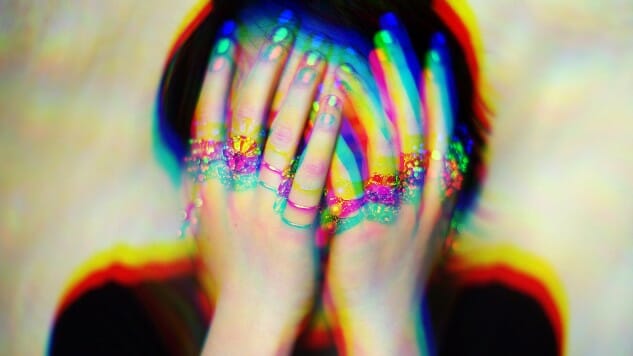An Open Letter to Anyone Who Is—or Knows Someone Who Is—Fighting a Panic Disorder
Photo by Ursula Ferrara/Shutterstock
“Sure, I make plans. I make plans, but I don’t wanna go. I make plans because I know I should want to go. I know, sometimes, I would have wanted to go … ”
When I recently came across Sabrina Benaim’s spoken word performance, Explaining My Depression To My Mother: A Conversation, I imagined people who truly understood this piece singing all kinds of hallelujahs when those words burst from her mouth with the type of anxiety they’re all too familiar with. To Sabrina, “anxiety is the cousin visiting from out of town that depression felt obligated to invite to the party;” for me, it’s exactly the other way around. Every now and then, my anxiety parties so hard, it would be rude not to invite depression to join the hoopla, no matter how far out of town.
Regardless, I couldn’t help but selfishly celebrate an awareness that for me, personally, only came about with the rise of the Internet and social media: I am not alone. And, being a writer, I of course felt a bit envious that after 17 years of dealing with similar issues, I haven’t been able to summarize these particular feelings—nay, head-fucks—quite as effectively as Sabrina. Her closing words—“Mom still doesn’t understand/Mom, can’t you see/That neither can I?”—sum it all up perfectly: how do you make someone understand that you yourself can’t understand what the hell is happening to you? How can you explain to someone that all the things you used to love have turned into a personal nightmare you can’t wake yourself up from?
I was 13 years old when I first started having panic attacks. I’m 30 now and they still tend to rule my life. Back then, they would often start with me pulling, what I call, The Stan. Like Stan Marsh from South Park, I’d spontaneously vomit when faced with an uncomfortable situation, before losing control over valuable things like my knees, my breathing and my viciously beating heart.
Unlike Stan, it wasn’t the opposite sex that induced these charming symptoms in me; it was being in public and closed spaces with people. It didn’t matter which people. I could be surrounded by my closest friends, but if we were in the wrong environment—i.e., anywhere outside of my designated comfort zone—chances were, I’d be feeling absolutely miserable, and above all, guilty. Miserable, because I was in the full throes of a panic attack and I had no idea how to explain it to the people around me; guilty because the people around me were my best friends, my parents, my brother, my partner and friends I never made.
By the time I reached 14 I was diagnosed with a Panic Disorder and Agoraphobia—a beautiful combo—and the whole thing took over my life. My brain resembles the map that pops up in the corner of your screen whilst playing Grand Theft Auto. The first thing I do before leaving the house and entering a possible trigger zone is map out all my escape routes. As is typical for panic disorders, the mere thought of having one again quickly leads to avoidance behavior. I have a master’s degree in it.
It’s like, if you know that you’re going to be sat on by an elephant determined to squish your most vital organs together until you can no longer breathe every time you attend a new place—would you still go? You’d probably want to, for fear of missing out on all the amazing places in the world, but you would tread with caution. And unfortunately, it is this type of trepidation that can quickly start ruling your every waking thought.
-

-

-

-

-

-

-

-

-

-

-

-

-

-

-

-

-

-

-

-

-

-

-

-

-

-

-

-

-

-

-

-

-

-

-

-

-

-

-

-








































